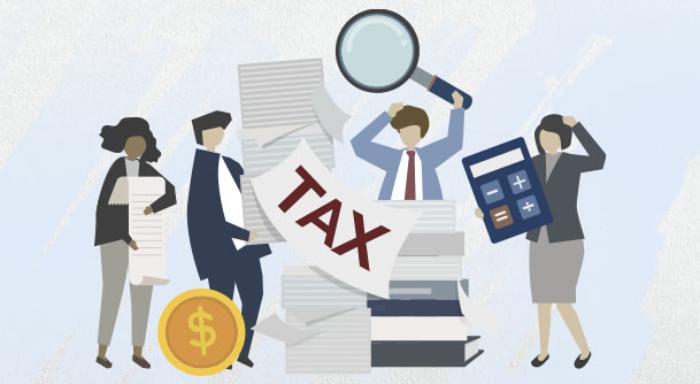Steps to Achieve Your Short Term Financial Goals
Blog Title
417 |
4/8/25 4:25 AM |
Whether you want to save for an emergency fund, a trip, or any big purchase, an organised and well-curated savings plan can help promote disciplined financial growth. Furthermore, you can also use tax-free investments and other ways to save on taxes to get the most out of your hard-earned cash.
By setting realistic goals, you can make smart choices with your money, which will help you succeed and become financially strong in the long run. In this guide, we will explore the importance of short-term financial goals and outline a step-by-step approach to achieving them efficiently.
Why are Short-Term Financial Goals Important?
Keep in mind that your future financial success depends on your current short-term financial objectives. These short-term goals act as building blocks for larger milestones and give you an immediate sense of success compared to far-off goals like saving for old age or paying for a house.
Here’s why they’re important:
Boost Motivation:
Achieving a short-term goal, like saving for a weekend getaway, gives you a sense of accomplishment and motivates you to take on bigger financial challenges.
Creates a Safety Net:
Short-term goals often include building an emergency fund, which provides a cushion for unexpected expenses and prevents you from going into debt.
Develop Positive Habits:
Setting and accomplishing short-term objectives aids in the development of crucial money management skills, including tracking your progress, saving, and creating a budget.
Reduces Stress:
By having a financial plan, you may feel less stressed and have more control of your life in terms of money.
Step-by-Step Guide to Setting Short-Term Financial Goals
Here’s a step-by-step guide to help you define and plan your short-term financial goals:
Set Clear Goals:
Start by noting what you want to achieve in the short term. Are you trying to establish an emergency fund, pay off debt, save for a trip, or purchase a new phone? List all the things that come to mind.
Make it Specific:
Vague goals are difficult to achieve. Instead of simply saying, "Save money," be specific about your goal and the amount needed. For example, setting a target like "save ₹2,000 for an emergency fund" provides clarity and makes it easier to track progress.
Attach a Realistic Timeline:
Give each objective a reasonable due date. This keeps you on course and instils a sense of urgency. For instance, "Save ₹2,000 for an emergency fund in five months."
Use the SMART Framework:
Ensure your goal is Specific, Measurable, Achievable, Relevant, and Time-bound. For example, Save ₹50,000 for a new laptop within 10 months by setting aside ₹5000 per month.
Prioritise Your Goals:
Most likely, you won't be able to accomplish all your goals at once. Sort them according to urgency and significance. Purchases that are absolutely necessary should probably be prioritised over luxury spending or saving for emergencies.
Tips to Achieve Short-Term Financial Goals Faster
Clear High-Interest Debt:
High-interest debts like personal loans or credit card dues can impact your budget. To boost your savings and investing potential, you should aim to pay off these debts in the short term.
Start by clearing smaller debts before tackling the bigger ones. This approach will help you become debt-free in the future.
Cut Unnecessary Spending:
Look for areas where you can reduce your expenses. Small savings add up over time. Consider cutting back on eating out, entertainment, or other non-essential purchases.
Increase Your Income:
If possible, find ways to increase your income. This could involve a side hustle, freelancing, or selling items you no longer need.
Track Your Progress:
Regularly monitor your progress to stay motivated and make adjustments as needed. Use budgeting apps, spreadsheets, or a simple notebook to track your savings and expenses.
Stay Flexible:
Life is unpredictable, and unexpected expenses may arise. Be flexible in adjusting your goals and timelines if needed but stay committed and keep moving forward.
Use Windfalls Wisely:
If you receive a bonus, tax refund, or other unexpected money, save it for your financial goals. This can significantly accelerate your progress.
Seek Professional Advice:
If you're feeling overwhelmed or unsure how to proceed, consider consulting a financial advisor. They can provide personalised guidance and help you create a plan tailored to your specific needs and circumstances.
Common Mistakes to Avoid
Ensure your goals are realistic and within your timeline/budget. Setting unattainable goals can lead to frustration and loss of motivation.
Failing to monitor your progress can make it difficult to stay motivated and make necessary adjustments. So, track your progress frequently.
Avoid making impulsive purchases that can derail your savings efforts.
Life is unpredictable, so always include a buffer for unexpected expenses.
Pursuing too many goals at once can stretch your resources and hinder your progress.
Conclusion
Short-term financial goals are powerful tools that help you build a stable financial future. By following the steps outlined in this guide and having a detailed savings plan, you can take control of your finances, achieve your dreams, and build a solid foundation for long-term financial security.
Start today, define your goals, create a plan, and take action. Your future self will thank you!










